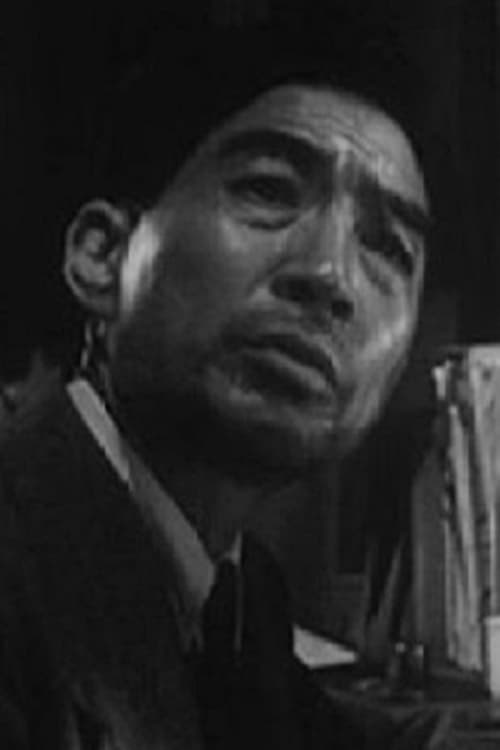Keiji Sakakida
Birth : 1900-01-15, Japan
History
Sakakida debuted in film in 1921, and appeared in a number pre-war films with various studios, including Nikkatsu, Takamatsu-Azuma, Empire Kinema, and Makino Talkie, before finally landing at PCL in 1937, which would later become Toho.
After the war, Sakakida appeared in numerous supporting roles for Toho, predominantly sci-fi, beginning with the original Godzilla in 1954. He played the mayor of the island town attacked by Godzilla in the first half of the film. One of his last appearances was in Terror of Mechagodzilla (1975), in a still shot of a group of scientists restraining Akihiko Hirata’s character.
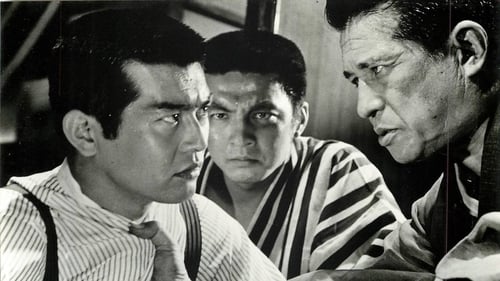
Tai Kato’s early 20th century set yakuza epic about an ordinary merchant girl (Hiroko Maki) who crosses paths with an assassin (Tetsuya Watari). The encounter sends her to jail as a suspected accomplice. Years later she marries a yakuza boss, whose gang is affiliated with working class people.

1864. Samurai Shinbei is sent in a secret mission to Ezo, in the North of Japan, to stop riots of villagers commanded by Jirozaemon. A Russian count's daughter, the village leader's daughter and a secret treasure add up to the adventure.

Sanzo
Farmer Abare Goemon is confronted by brigand-like samurai. He raises an army of farmers to fight them and does so brilliantly. When Lord Asakura sees the success Goemon has achieved, he attempts to recruit him to fight in a conflict between Asakura and another clan. Goemon refuses, and Lord Asakura sets out to destroy him.
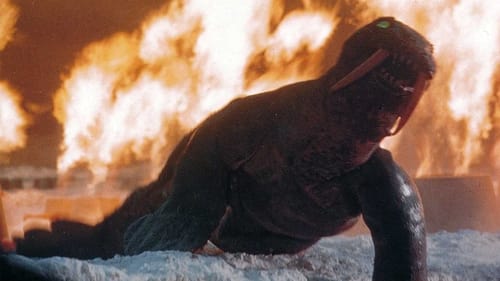
Government Personnel
In 1980, a giant planetoid named Gorath is discovered to be on a collision course with Earth. Even though it is smaller than Earth, its mass is huge enough to crush the Earth and destroy it. A mission sent to observe Gorath is destroyed after all the orbiting ships are drawn into the planetoid. A later mission is sent to observe and the crew barely leaves before suffering the same fate. However Astronaut Tatsuo Kanai is left in a catatonic state due to his near death experience. The Earth's scientists then come up with a desperate plan to build giant rockets at the South Pole to move Earth out of Gorath's path before it is too late.

(uncredited)
A librarian is subject to a scientific experiment which goes wrong and transforms him into 'The Human Vapour'. He uses his new ability to rob banks to fund the career of his girlfriend, a beautiful dancer. The Human Vapour is ruthless in his quest for money and kills anyone who stands in his way, especially police. He soon becomes Tokyo's most wanted criminal. Can he be stopped before he kills again?
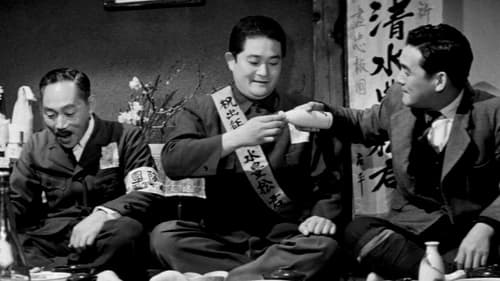
On a post-war peaceful day in Japan, Toyomatsu Shimizu, a barber as well as a good father and husband, is suddenly arrested by the Prefectural Police as a war criminal and sued for murder.
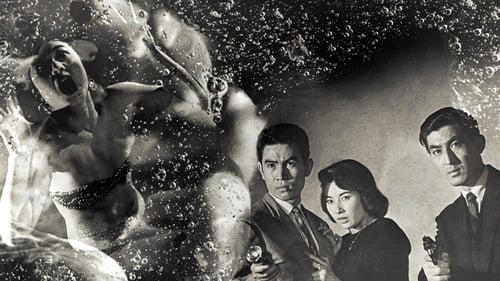
Old policeman - investigation room (uncredited)
Nuclear tests create a radioactive man who can turn people into slime.
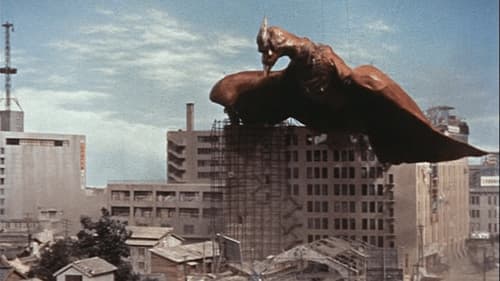
Tahei
Mining engineer Shigeru investigates the disappearance and death of his fellow coworkers when prehistoric nymphs are discovered emerging from the mines. After an attack on the local village, Shigeru heads deeper into the mines only to make a more horrifying discovery in the form a prehistoric flying creature. Soon a second monster appears as the two converge in Fukuoka.

Watchman (uncredited)
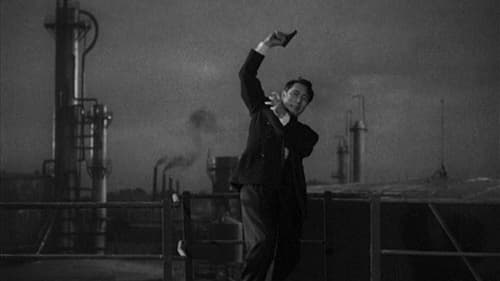
When an invisible man is run down by a car it’s up to an eager young reporter and a strange clown to bring a dangerous gang to justice.
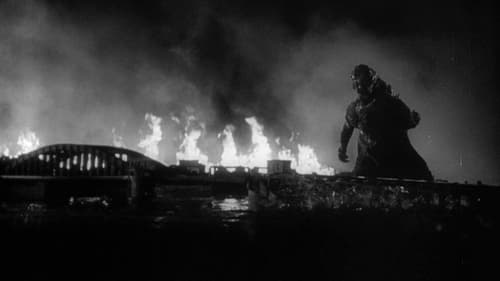
Mayor Inada (uncredited)
Japan is thrown into a panic after several ships are sunk near Odo Island. An expedition to the island led by Dr. Yemani soon discover something far more devastating than imagined in the form of a 50 meter tall monster whom the natives call Gojira. Now the monster begins a rampage that threatens to destroy not only Japan, but the rest of the world as well.

Gosaku
A samurai answers a village's request for protection after he falls on hard times. The town needs protection from bandits, so the samurai gathers six others to help him teach the people how to defend themselves, and the villagers provide the soldiers with food.
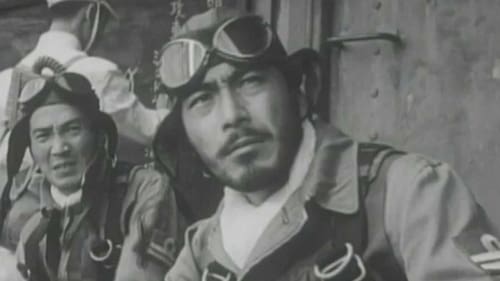
Admiral Isoroku Yamamoto, a brilliant tactician, is a loyal subject of the emperor, despite his grave misgivings about leading Japan's navy into war with the United States. He opposes the attack on Pearl Harbor, but, overruled, he leads his forces to the best of his ability.
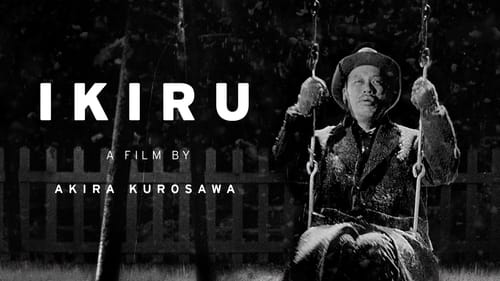
Land Readjustment Section Receptionist (uncredited)
Kanji Watanabe is a middle-aged man who has worked in the same monotonous bureaucratic position for decades. Learning he has cancer, he starts to look for the meaning of his life.
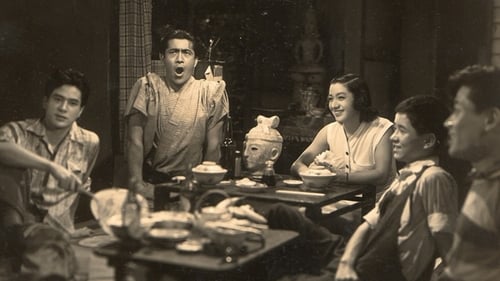
Following the Second World War, the lives of various people in a poverty-stricken area of Tokyo are entertwined. Pachinko parlor girls, shoeshine boys, a maker of costume jewelry, and a streetcorner artist all struggle to make their livings and to find happiness in difficult surroundings.

Saburo and Keiko fall in love with each other but the tide of war separates them.

A sixteen-year-old who had been living on her own since her mother died, frequently gets in trouble with the police. She gets sent to an "institute" for young girls in the countryside. There the residents grow their own food, cook and clean for themselves, and are taught language, music, and sewing. While there the young girl slowly begins to form friendships and come out of her shell.
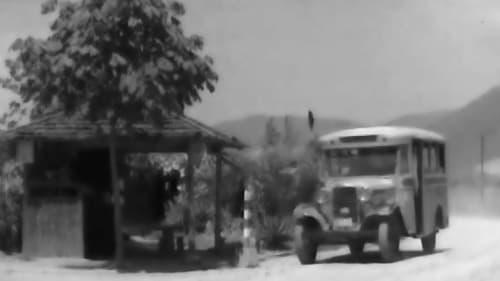
Bus customer
Okoma, a witty young woman working as a conductor in an old, rickety bus in Kōfu, Yamanashi (rural Japan), has a creative idea that could avert the dwindling number of passengers when her job and the bus company itself are at stake.

Japanese war-era film

Farmer
This film depicts a troupe of wandering kabuki players traveling through rural Japan.

Song of the White Orchid was a co-production of Toho and Mantetsu, the railway that served the colonial region of Manchuria, and the first film in the Kazuo Hasegawa/Shirley Yamaguchi (Ri Koran) “Continental Trilogy.” Handsome Hasegawa (representing Japan) runs up against an impertinent Yamaguchi (representing the continent); not surprisingly, in the course of the film the woman comes around and realizes the benevolent intentions of the Japanese. In Song of the White Orchid Yamaguchi leaves Hasegawa, who plays an expatriate working for the railway, because of a misunderstanding. She joins a communist guerilla group plotting to blow up the Manchurian railway. Learning of the subterfuge that led to the misunderstanding, she renews her faith in Hasegawa—and by extension Japan—and tries to undermine the plot.

This film attempts to reconstruct the tension of the Battle of Shanghai through an episode in an understated way, introducting its story in a documentary mode. In the film story, Japan's marine regiment protects Japanese residents and Chinese refugees-women and young children-from rampant street fighting, Shanhai Rikusentai unsparingly uses its first eight minutes for an official-mannered self-justification of the war. From the viewpoint of explaining Japan's military operation,the narration refers to the city s spatial division in sync with maps on screen.

Ticket Clerk
An episodic film about life in and around a rural police station and the people it serves.

Japanese adaptation of LES MISERABLES. The last film of director Itami took inspiration from Les Miserables. Transpiring during the Southwestern War of 1877 in Japan, which was the last civil war in the country, a criminal escapes prison only to be found by a monk. The criminal decides to turn a new leaf based on their conversation and goes on to become a town's mayor. He hears news of a mistaken arrest and identity. The revelation of truth is the start of a series of miseries.

Ino tries to control Mon’s every move, but she becomes a fallen woman, having an affair with a student, Obata whereas her sister San remains a “good girl.” The mother is very supportive of her daughters, but, the father, Akaza, who is the stonecutter foreman on the damn, lacks control of his family.

Father, son Kentaro and daughter Ochiyo, who live on the banks of the Sumida River, regain their love for each other after family discord and separation. The film is considered lost.
